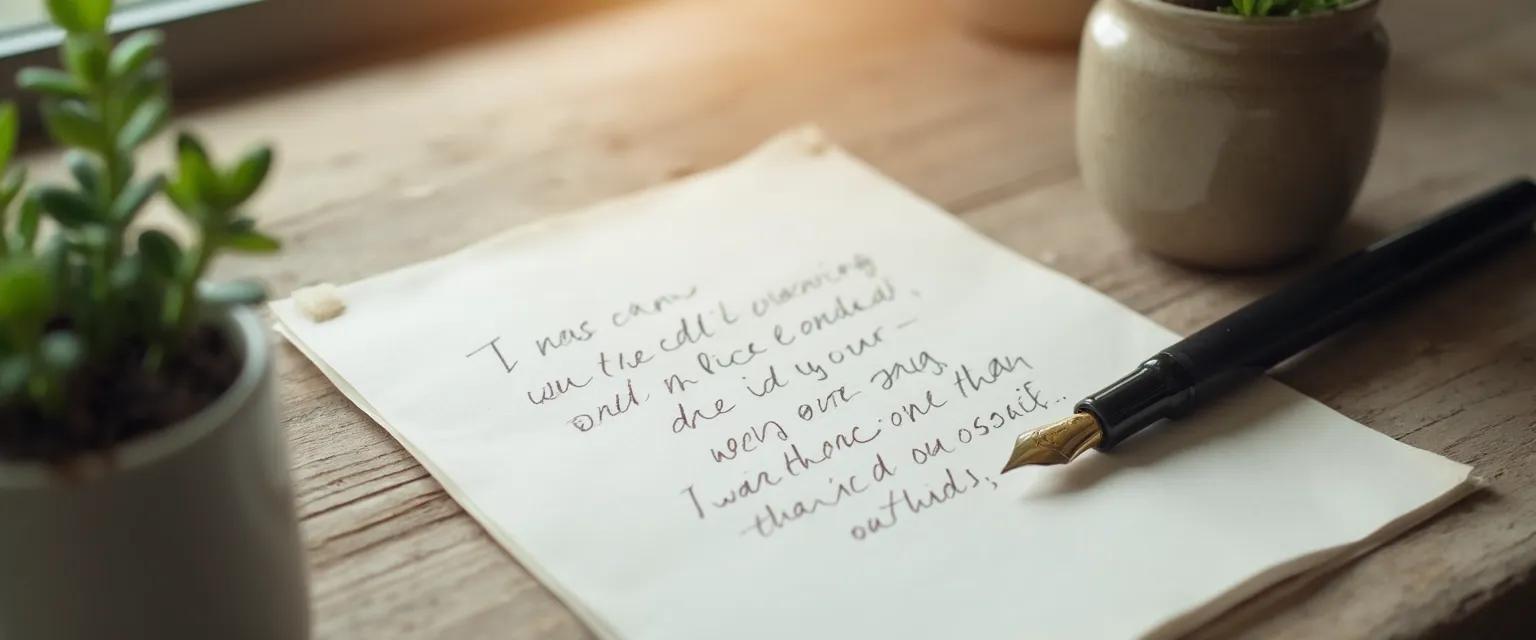Heartfelt Words: What to Say to Bereaved Friends Through Letter Writing
Finding the right words to comfort a grieving friend can feel like navigating a minefield of emotions. Knowing what to say to a bereaved friend is challenging – our instinct to "fix" their pain often leads to awkward conversations or avoidance. Yet, during these difficult moments, written communication offers a thoughtful alternative that can provide genuine comfort. When verbal support feels overwhelming, letter writing emerges as a powerful tool for expressing condolences with intention and care. Understanding effective what to say to a bereaved friend approaches matters deeply for supporting those we care about on their healing journey.
The pressure to find perfect words often prevents us from reaching out at all. In fact, many people report that some friends disappeared after their loss – not from lack of caring, but from fear of saying the wrong thing. Learning meaningful grief support techniques helps bridge this gap, allowing you to be present for your friend when they need connection most.
The Healing Power of Letters When Supporting a Bereaved Friend
When considering what to say to a bereaved friend, written words often provide comfort that spoken ones cannot. Letters create a safe space for both expressing and receiving difficult emotions. Unlike conversations that demand immediate responses, written condolences allow the bereaved to process your message at their own pace, returning to your words when they feel emotionally ready.
Research from grief specialists shows that tangible expressions of support – like handwritten notes – provide ongoing comfort long after the initial loss. Your friend can revisit your letter during particularly difficult moments, drawing strength from your words months or even years later. This lasting quality makes knowing what to say to a bereaved friend in writing especially valuable.
The act of writing itself has therapeutic benefits for both parties. As you carefully consider what to say to a bereaved friend, you engage in a thoughtful process that honors their loss more deeply than hurried verbal exchanges. This deliberate approach helps you offer more meaningful support while giving yourself space to process your own emotions about their loss.
Neurological research confirms that receiving handwritten notes activates emotional processing centers in the brain differently than digital communications. This makes letter writing for grief particularly effective in conveying genuine empathy and supporting emotional resilience during bereavement.
Thoughtful Approaches: What to Say to a Bereaved Friend in Writing
Timing matters significantly when determining what to say to a bereaved friend. While immediate condolences are appropriate, consider sending follow-up letters at meaningful intervals – one month, six months, or anniversary dates of the loss. These touchpoints acknowledge that grief doesn't follow a neat timeline and show your ongoing support when others have moved on.
Effective Phrases for Condolence Letters
- "I remember when [specific memory of loved one]" – sharing memories validates their loss
- "I'm thinking of you on Tuesdays and Thursdays" – being specific about when you're holding them in your thoughts feels more genuine than "always"
- "I'm here to listen whenever you want to talk about [loved one's name]" – using the deceased's name acknowledges their continued importance
When crafting what to say to a bereaved friend, avoid phrases like "everything happens for a reason" or "they're in a better place." Instead, focus on acknowledging their pain: "This loss is devastating, and I'm here with you through it." This honesty creates space for authentic grief rather than forcing positivity.
Consider including practical offers of support with specific details: "I'll bring dinner next Tuesday" rather than "let me know if you need anything." These concrete gestures demonstrate your commitment to supporting emotional healing beyond words alone.
Remember that what to say to a bereaved friend extends beyond the immediate aftermath. In your letters, acknowledge upcoming difficult dates like birthdays or holidays: "I know this first Christmas without Sarah might be especially hard. I'm holding space for whatever emotions arise for you."
The most meaningful what to say to a bereaved friend guide emphasizes authenticity over perfection. A heartfelt, imperfect letter arrives as a gift during grief – tangible evidence that someone cares enough to sit with their pain. By taking time to write thoughtfully, you provide a rare form of support that acknowledges both the magnitude of their loss and your commitment to walking alongside them as they learn to carry it.




